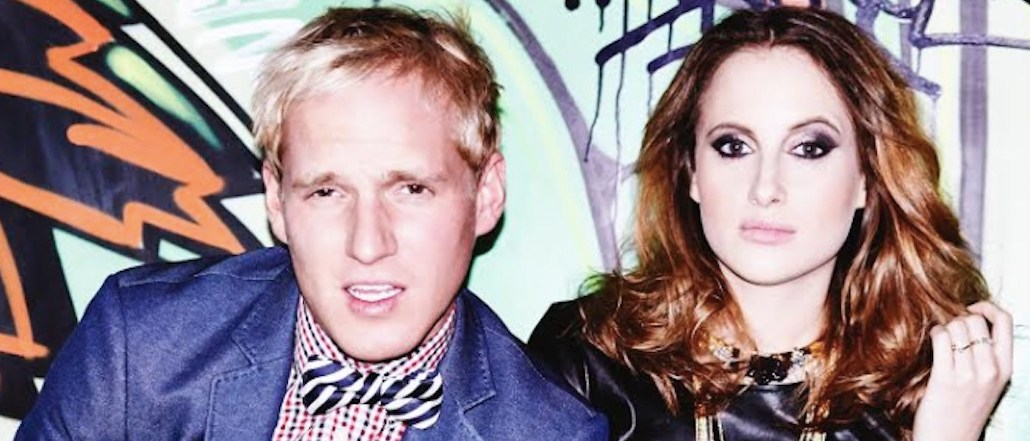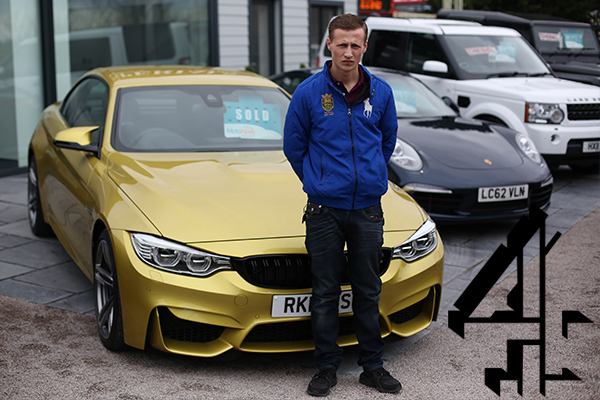

Five months ago, Channel 4 undertook a radical overhaul of its video-on-demand (VoD) service 4oD, rebranding it as All4 and introducing original digital content commissions. The centerpiece for its original content is what it calls its Shorts, mini-programs designed to cater to the millennial demand for mobile-friendly, snackable content. These all live on All4, which boasts 12 million registered viewers, with half of the 16-34 year olds in the U.K. signed up.
It is currently working with 28 independent production companies to create bespoke content for All4, with 40 shows produced so far, 27 shows of which are currently live and another 13 still in production.
Richard Davidson-Houston, head of All4 and digital content for the broadcaster, believes the VoD landscape has become commoditized — and All4 is the fix. He spoke to Digiday about its road map.
Explain the thought process behind All4. Is this just a rebrand?
The transition from 4oD to All4 came partly from a recognition that the flagship digital products should be more than something that mops up attention being displaced from TV. They should be that but also something that builds its own reputation as a destination. We had begun to talk about All4 as a channel, rather than a service or product. You can feel the difference just in the name. It’s not apologetic.
What do you mean by “not apologetic?”
There is something apologetic — though perhaps “subordinate” is a better term — about an on-demand service or player. As a brand [4oD] had come to feel like a subordinate to a “proper” brand like Channel 4 or E4. And of course in digital, there are very powerful and credible brands, like Netflix, that don’t have to explain themselves as players or on-demand services. They are just things.
How is All4 different from 4oD?
What we offer, and how we present it, must be more than [meeting] the audience’s appetite to catch up on things they missed on TV. That’s important because it gives us a foundation we can then build on to be a genuine destination. Perception-wise, there were some essential things around stability and performance and content discoverability we wanted to change. All the technical services that underpin All4 were redone — everything from streaming quality to things like speed of page loading. We are now in a far better place, and we can see from our feedback that audiences appreciate the product more now.
What’s next?
We want to build on All4 being a channel and destination especially geared for young people. That’s why we are pushing so much into original content commissions, which are complementary to that younger audience’s viewing habits. And the first version of that so far has been Shorts.
How closely do you work with the commercial teams?
There are ad-funded and non ad-funded Shorts. It was kind of a shot in the dark but we are pleased with the progress, and we are now getting close to 10 million views on the platform. And that’s people who are watching the full episodes, not just the first 20 seconds, which is often the case on non-premium platforms. For an ad-funded Shorts, a brand will talk to us about a creative brief, and then one of my commissioners will talk to one of the commercial team, and then we both talk to an independent production company. Several shows stand out as being particularly successful ad-funded Shorts series; those were “Educating Binky” [below] funded by Rimmel, a second one called “Made Over in Chelsea” also funded by Rimmel, “Guy Martin’s Passion For Life” funded by Alfa Romeo, and “What Not To Do” funded by Scope.
Can you share figures?
We don’t share figures for individual shows. There have been a number of shows where the viewing figures have gone over half a million views. Then there are other occasions where shows disappear without a trace, that’s how it goes. August will be the second month we have had over a million views — as we did in May. So week by week, month by month we are getting better.
How do you approach marketing of All4 shows across Channel 4 to achieve standout?
One of the best performing shows we’ve had is “Rich Kids Go Shopping.” That hit a brilliant formula which we now try and apply consistently. It’s formed of three things: It must have a title that is as good as a TV title, the promotional image must be as good as a viral Instagram, and the synopsis must be as good as a great tweet. Then you have a lot of pulling power.
Give an example.
So we had a picture of a young man with a golden BMW [below] which is quite attention grabbing, and the synopsis was: “They’re young, they’re smart, and they’re richer than you are.” That combination led to a lots of clicks. Of course, that is nothing if they click through and watch for only 15 seconds, but happily it was a great show and people watched the full episode. Then a large number went on to watch all six episodes.

How do you compete for younger audiences’ attention in today’s fragmented media landscape?
We have valuable, large, young audiences coming to All4 anyway as they know certain loved shows will be on there. It’s like being handed over the baton in a relay race. TV runs the first leg, then we take over and try and figure how to speed it up, rather than just run it at the same pace.
What other original content commissions do you have coming up?
Subtitled dramas — such as the French series “The Returned” — are now more common on mainstream TV, and we have partnered with GSN World Drama to bring in more international drama to All4. We will put multiple dramas exclusively on All4. These will be ad funded again, so there will be no subscription fee. Doing things like this creates a point of difference for us,. It’s a richer, more channel-like proposition.
How do you use your viewer-registration data to shape content strategy?
There are three main ways that we use data. Firstly, it’s to inform our programmatic selling and maintaining premiums in CPMs. The second is, it informs our own outbound marketing. And thirdly, we use it to sometimes test how a bit of content will do on a device. Or we might run something on Android devices for a day to get an idea of how it performs before then committing fully to it. The data informs our content direction.
More in Media

Digiday+ Research: Dow Jones, Business Insider and other publishers on AI-driven search
This report explores how publishers are navigating search as AI reshapes how people access information and how publishers monetize content.

In Graphic Detail: AI licensing deals, protection measures aren’t slowing web scraping
AI bots are increasingly mining publisher content, with new data showing publishers are losing the traffic battle even as demand grows.

In Graphic Detail: The scale of the challenge facing publishers, politicians eager to damage Google’s adland dominance
Last year was a blowout ad revenue year for Google, despite challenges from several quarters.





